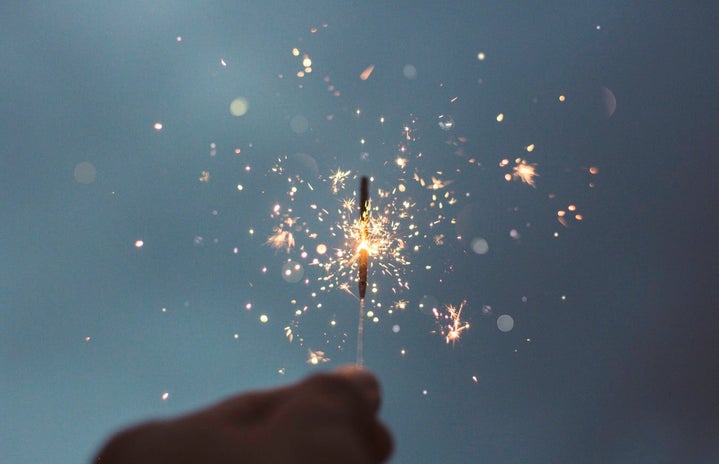It happens every year. The Christmas craze comes to an end, and so begins the madness of New Year’s and, by direct association, New Year’s resolutions. Don’t get me wrong, New Year’s is my favorite holiday. I feel this wonderful sense of nostalgia mixed with anticipation bubbling up around this time of year, much like the champagne I look forward to toasting with. For me, it’s a time of deep self-reflection to see how much I’ve grown in the past year and to set my sights on what I want to do next. But I know this is not the case for everyone. Society sets some twisted expectations for New Year’s, and this, unfortunately, winds up ruining what could be a lovely holiday. For this reason, I think it’s time to reframe the way we think about New Year’s and making New Year’s resolutions.

The reality is that achieving your resolutions is a much slower transformation than we expect, with plenty of detours along the way. As much as I wish it could be like every movie montage where the main character ardently yet flawlessly evolves, that’s not the way it typically works for us mere mortals. If you want to improve yourself in any way, it’s going to take consistent effort in the form of small actions.
First of all, you don’t want to overwhelm yourself with an endless list of goals. You’re welcome to write out said list, but don’t expect to be able to work out, eat well, stay hydrated, get plenty of sleep, read more, save money, spend more time with friends, work on that side project, quit binge-watching Netflix and stay sane all at the same time. Setting too many goals for yourself will give you mental fatigue, and it’s more likely that your efforts will come to a crashing halt as a result. Instead, prioritize a few, or even just one resolution that you want to focus on. Once you think you’ve got those down, move on to the next batch. Repeat this process as needed, steadily chipping away at that long list you made.
By the end of the year, you will be surprised to see how far you’ve come and will have accomplished much more than you would have otherwise. It’s the small actions we take every day that adds up over time and ultimately changes who we are, for better or worse. The results of these daily actions are almost imperceptible when you’re looking at things up close, and this can of course be discouraging when it comes to our goals. But if you trust the process and do the work, whatever that may be for you, you will see dramatic changes in the long run. Just look back on who you were at the beginning of this year and you’ll see what I mean. Try your best to show up every day as the person you want to be, and that’s who you’ll become. And remember to be grateful for who you are all along the way. Here’s to a healthier, more productive way to reach our goals in 2021 — cheers!




